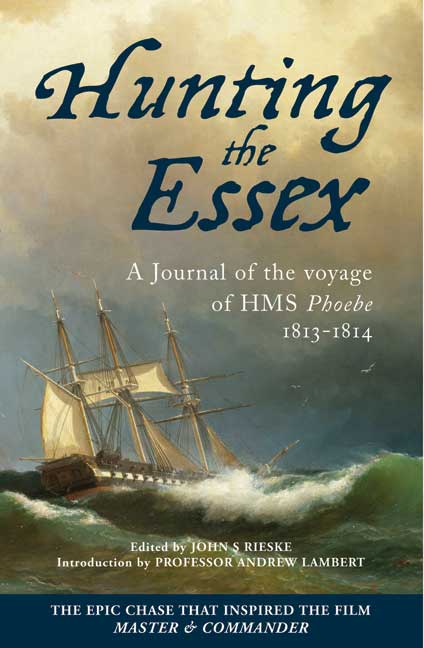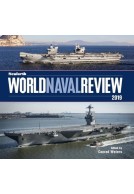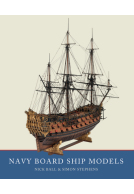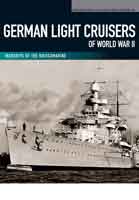Hunting the Essex (ePub)
A Journal of the Voyage of HMS Phoebe 1813-1814

File Size: 3.7 MB (.epub)
ISBN: 9781473826670
Published: 19th June 2013
In February 1813 the British frigate Phoebe set out on a secret mission that would involve sailing halfway around the world to attack American settlements in the Pacific Northwest. The United States, frustrated at the treatment of its shipping by the combatants in the Napoleonic Wars, had finally opened hostilities against the British in the previous June. From the American perspective the War of 1812 began with disasters in its invasion of Canada, but against all expectations the infant US Navy had scored significant victories at sea. The most strategically significant of these was the campaign by the frigate USS Essex, which had almost annihilated the lucrative British whaling trade in the south Pacific. Therefore, Phoebe was diverted to hunt down and destroy this highly successful commerce-raider.
After an epic search, Phoebe tracked her prey to neutral Valparaiso where the American frigate was blockaded and,in a very bloody battle, eventually captured. The American captain, David Porter, published a self-serving account of his actions which ever since has mired the battle in controversy, so this British naval eyewitness account is an important counter-balance. It is one of the lesser-known campaigns of a war which is currently celebrating its bicentenary, but its inherent drama inspired the plot of Patrick O'Brian's novel The Far Side of the World, although in its movie adaptation Master & Commander the American frigate is transformed into a French privateer.
[Hunting the Essex] offers a different insight into the events of the 'Phoebe' and 'Cherub' verses 'Essex' battle, thus putting [Captain David] Porter's better-known account into a fresh perspective.
The Northern Mariner/Le marin du nord
A fascinating document of the time.
Modell Werft magazine
Hunting the Essex is recommended for scholars and laymen with an interest in the War of 1812 in particular and in nineteenth-century naval history in general.
Nautical Research Journal
In February 1813 the British frigate Phoebe set out on a secret mission that would involve sailing halfway around the world to attack American settlements in the Pacific Northwest. From the American perspective the War of 1812 began with disasters in its invasion of Canada, but against all expectations the infant US Navy had scored significant victories at sea. The most strategically significant of these was the campaign by the frigate USS Essex, which had almost annihilated the lucrative British whaling trade in the south Pacific. Therefore, Phoebe was diverted to hunt down and destroy this highly successful commerce-raider.
historicnavalfiction.com
After an epic search, Phoebe tracked her prey to neutral Valparaiso where the American frigate was blockaded and,in a very bloody battle, eventually captured. The American captain, David Porter, published a self-serving account of his actions which ever since has mired the battle in controversy, so this British naval eyewitness account is an important counter-balance. It is one of the lesser-known campaigns of a war which is currently celebrating its bicentenary, but its inherent drama inspired the plot of Patrick O'Brian's novel The Far Side of the World, although in its movie adaptation Master & Commander the American frigate is transformed into a French privateer.
This book falls within the excellent series of Authentic Voices. Editing has been sensitive and a useful foreword is provided by Professor Andrew Lambert, but the real author is a Midshipman writing his journal at the time of the epic chase. Many will be familiar with the story in its dramatized form by O’Brian in “The Far Side of the World” and the film that was draw from his book “Master and Commander”.
Broadley Boats – firetrench.com
In February 1813 the British frigate Phoebe set out on a secret mission that would involve sailing halfway around the world to attack American settlements in the Pacific Northwest. From the American perspective the War of 1812 began with disasters in its invasion of Canada, but against all expectations the infant US Navy had scored significant victories at sea. The most strategically significant of these was the campaign by the frigate USS Essex, which had almost annihilated the lucrative British whaling trade in the south Pacific. Therefore, Phoebe was diverted to hunt down and destroy this highly successful commerce-raider.
historicnavallfiction.com - Non fiction reviews
After an epic search, Phoebe tracked her prey to neutral Valparaiso where the American frigate was blockaded and,in a very bloody battle, eventually captured. The American captain, David Porter, published a self-serving account of his actions which ever since has mired the battle in controversy, so this British naval eyewitness account is an important counter-balance. It is one of the lesser-known campaigns of a war which is currently celebrating its bicentenary, but its inherent drama inspired the plot of Patrick O'Brian's novel The Far Side of the World, although in its movie adaptation Master & Commander the American frigate is transformed into a French privateer.
The books real values is as a time machine that takes readers into a world from which 200 years separates us. Gardiner is revealed as an intelligent and enterprising individual. Hunting the Essex" is a fascinating little book, well worth reading.
Galveston Daily News
About Midshipman Allen Gardiner
JOHN S RIESKE, a retired American academic with an interest in maritime history, discovered and purchased the manuscript of this unpublished journal by a Midshipman who served in the Phoebe. Recognising its historical significance, he transcribed and edited it for publication.














